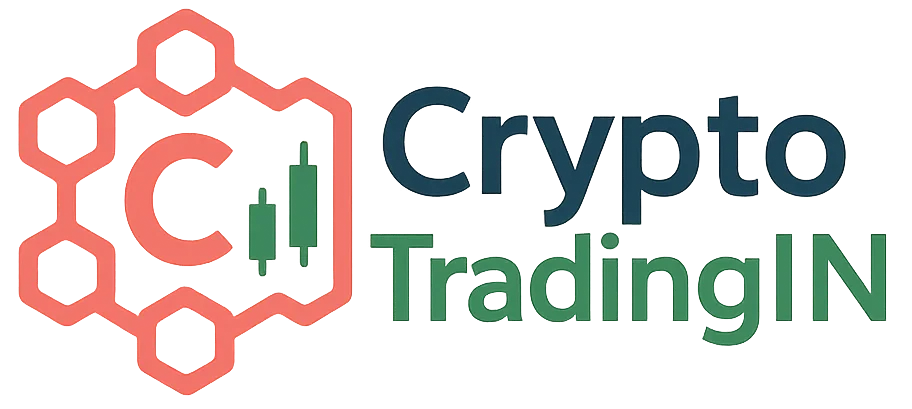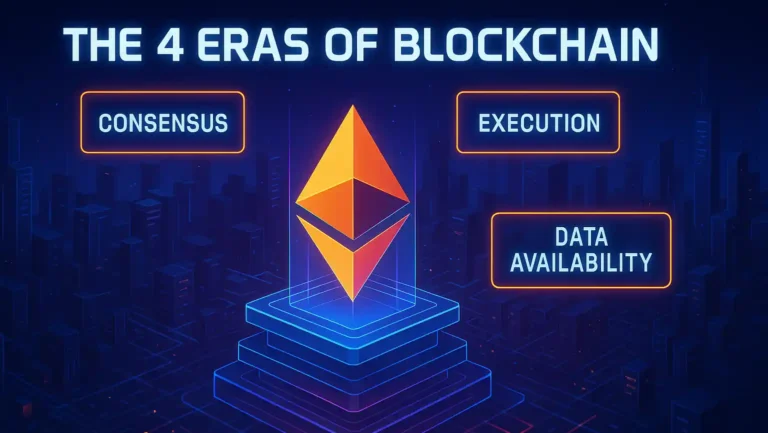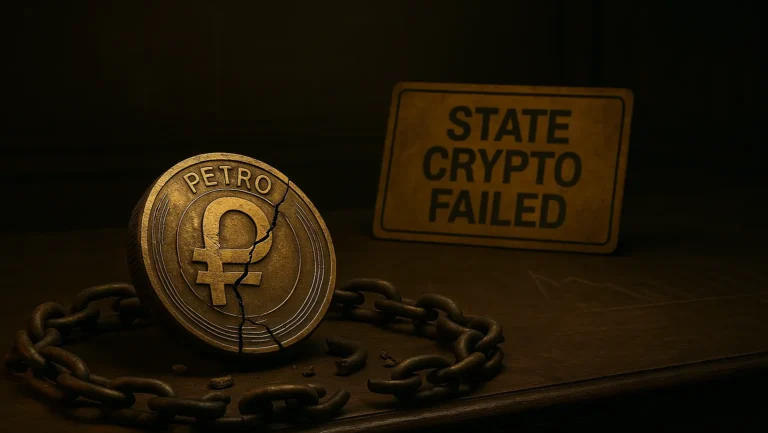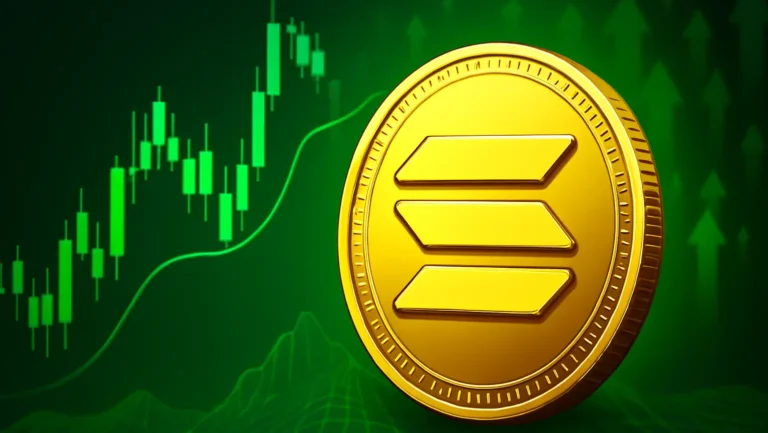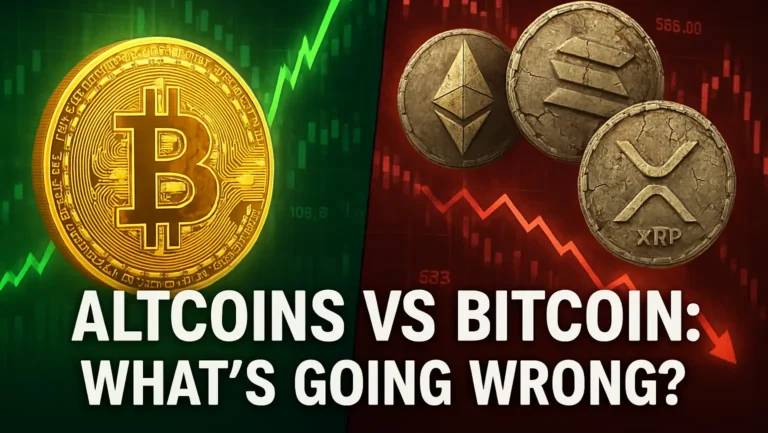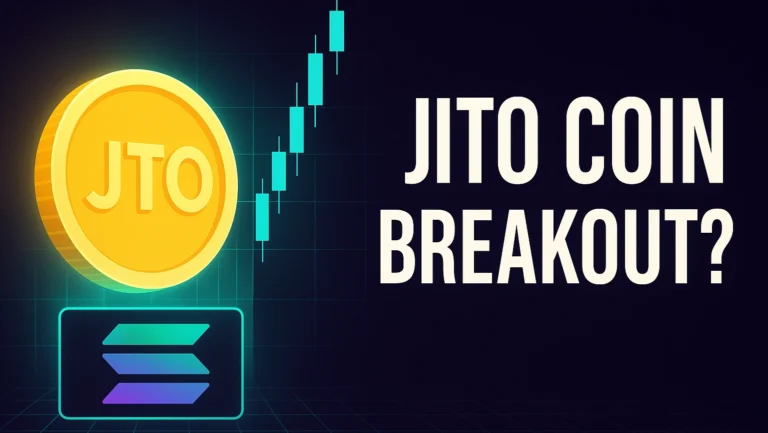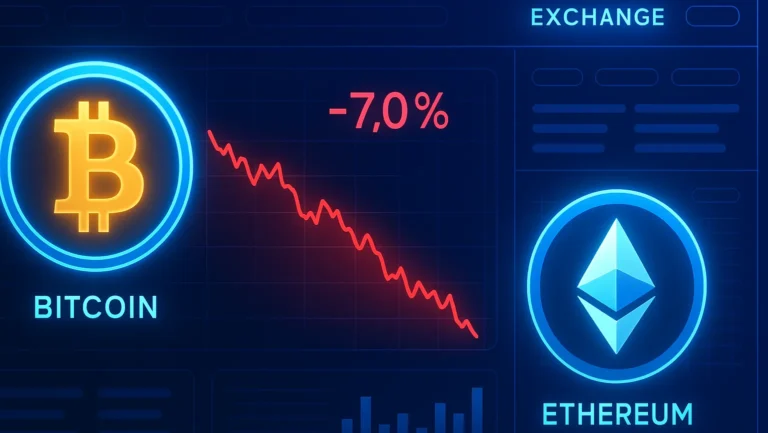Can XRP Be the Next Bitcoin? Key Differences, and 2025 Outlook
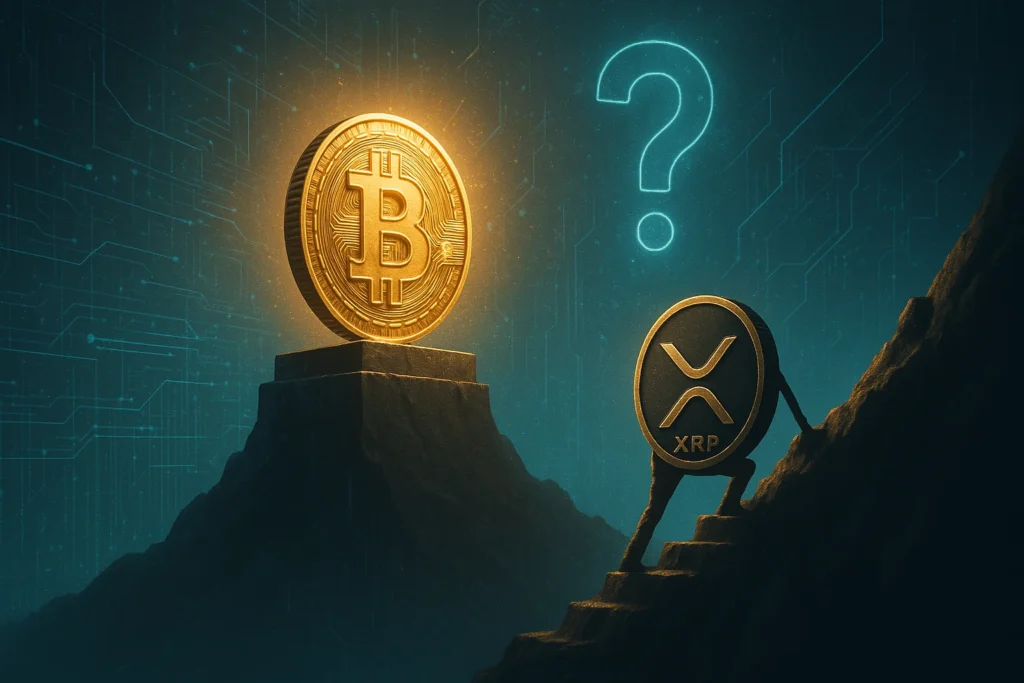
Can XRP Become the Next Bitcoin?
Today, I want to talk to you about a very interesting and much-debated topic: Can XRP be the next Bitcoin? I know, just like me, you’re always on the lookout for new opportunities in the crypto world and wondering if you might be missing out on the next big thing.
Every crypto enthusiast asks themselves, Am I missing the next Bitcoin? So, let’s dive in and explore XRP’s journey, its potential, and what the future might hold.
What Is Bitcoin and Why Is Everyone Crazy About It?
If you are new to crypto, it is important to understand what Bitcoin actually is. Bitcoin was launched in 2009 as the world’s first decentralized digital currency.
Its main purpose was to create a currency that no government or central bank controls. People often call Bitcoin “digital gold” because, just like gold, it has a limited supply.
Here’s why Bitcoin’s value is so high today:
- Limited supply – Only 21 million Bitcoins will ever exist.
- Decentralization – No single entity controls the network.
- Trust and adoption – Over the years, more people have trusted and adopted Bitcoin.
You’ve probably heard stories of people becoming millionaires or even billionaires by investing in Bitcoin early. But now the big question is- Can XRP do the same?
Read: What Is Going On With Crypto Today
What Is XRP?
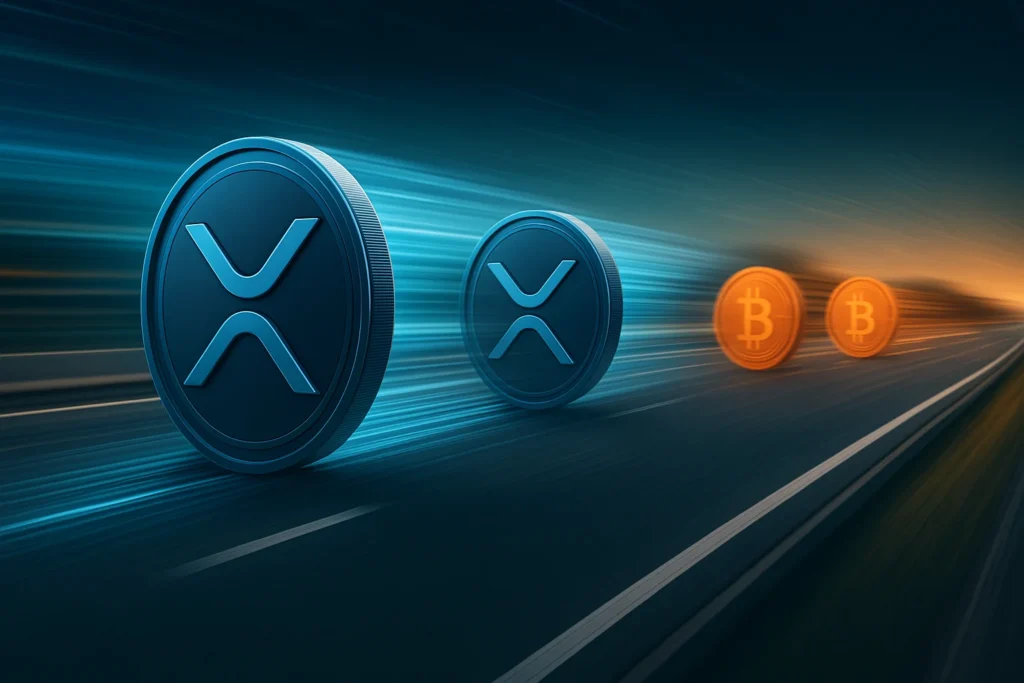
You’ve heard about XRP, but maybe you’re confused about whether XRP and Ripple are the same thing. Let me explain it simply.
- Ripple is a company that wants to make global payments faster and cheaper.
- XRP is a cryptocurrency that runs on Ripple’s network, but Ripple the company doesn’t own XRP outright.
Ripple’s main focus is helping banks and financial institutions send money to each other quickly and cheaply. So, if you want to send money from India to the US, Ripple’s network can make that transfer almost instant and with very low fees.
The Bitcoin Phenomenon: Why Is It So Special?
Before we talk about XRP, let’s revisit why Bitcoin is such a big deal. Bitcoin wasn’t the first attempt at digital money, but it was the first to solve the double-spending problem without needing a central authority. That’s huge.
- Bitcoin’s creation: In 2009, Satoshi Nakamoto released Bitcoin as open-source software. The idea was simple but revolutionary: a peer-to-peer electronic cash system.
- Limited supply: Only 21 million Bitcoins will ever exist. This scarcity is a big reason for its value.
- Decentralization: No company, government, or individual controls Bitcoin. The network is maintained by miners and nodes all over the world.
- Store of value: Over time, Bitcoin has become known as “digital gold.” People buy it to protect their wealth against inflation and economic uncertainty.
If you’ve ever regretted not buying Bitcoin at $100, $1000, or even $10,000, you’re not alone. The fear of missing out is real in crypto!
Enter XRP: What Makes It Different?
Now, let’s talk about XRP. If you’re new to this coin, here is what you need to know.
- Ripple and XRP: Ripple is the company; XRP is the digital asset. Ripple created XRP to make cross-border payments faster and cheaper.
- Speed and cost: XRP transactions settle in seconds and cost a fraction of a cent. That’s a game-changer for banks and payment providers.
- Partnerships: Ripple has worked with hundreds of financial institutions worldwide, including Santander, American Express, and SBI Holdings.
- Supply: XRP started with 100 billion tokens, with about 57 billion currently circulating. Ripple holds a large portion in escrow.
Unlike Bitcoin, which is mined, all XRP tokens were created at launch. This difference in supply and distribution is key to understanding why XRP and Bitcoin are so different.
Bitcoin vs XRP – What’s the Big Difference?
Here is simple comparison between the two:
| Feature | Bitcoin (BTC) | XRP (Ripple) |
|---|---|---|
| Main Use Case | Store of value, digital gold | Cross-border payments, financial utility |
| Supply Cap | 21 million | ~100 billion (57B circulating) |
| Decentralization | Highly decentralized | More centralized (Ripple Labs’ influence) |
| Institutional Focus | Store of value, investment | Payment rails, financial institutions |
| Price Potential | Already above $100,000 | Bullish: $10–$120 (2030, optimistic) |
| Regulatory Status | Generally clear | Improving, but historically uncertain |
Why Does XRP Have a Much Higher Supply Cap Than Bitcoin?
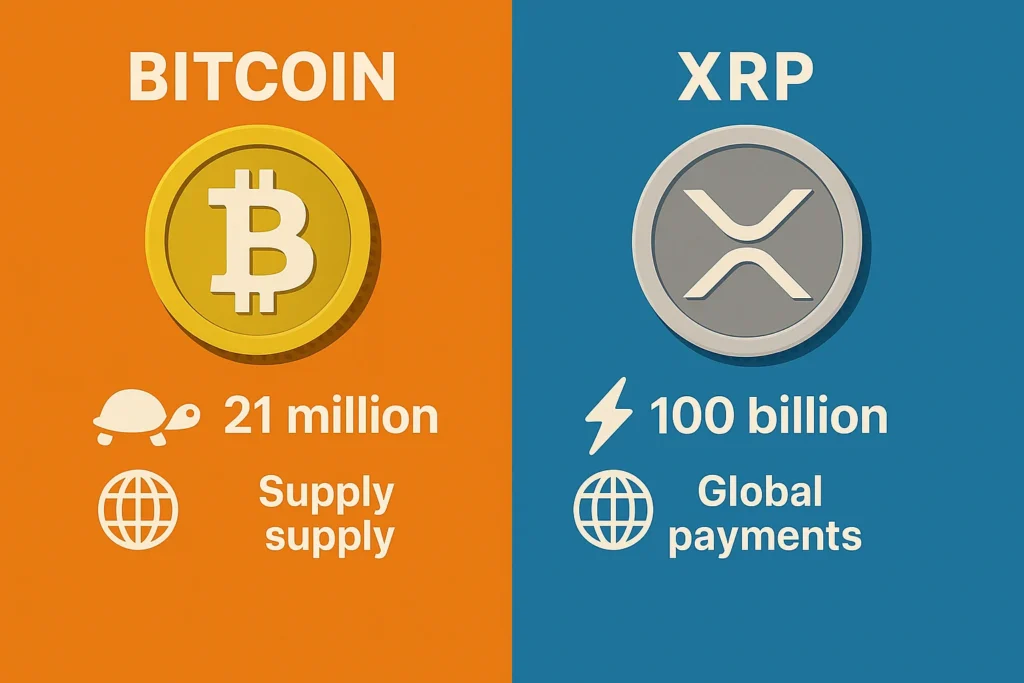
When you look at the numbers, it’s clear: XRP’s supply cap is much higher than Bitcoin’s, 100 billion XRP compared to just 21 million BTC. But why is there such a big difference? The answer lies in the design philosophy and intended use cases of both cryptocurrencies.
Bitcoin’s Scarcity (21 Million Cap):
Bitcoin was designed to be a scarce digital asset, similar to gold. Its creator, Satoshi Nakamoto, set the supply limit at 21 million to create scarcity, which helps drive value over time.
Bitcoin is mined gradually, and the reward for mining new Bitcoins halves every four years, making new supply slower and scarcer as time goes on.
XRP’s Abundance (100 Billion Cap):
In contrast, XRP was designed for a completely different purpose: to power fast, low-cost, high-volume global payments, especially for banks and financial institutions.
The creators of XRP issued the entire supply (100 billion tokens) at launch to ensure there would always be enough liquidity for large-scale transactions.
XRP isn’t mined; all tokens exist from the start, and a small amount is burned with each transaction to prevent spam, but the total supply remains very high.
Design Philosophy:
Bitcoin’s limited supply supports its role as a store of value, while XRP’s large supply supports its use as a utility token for global payments. As Ripple CTO David Schwartz has explained, XRP’s higher supply makes sense for its intended use in high-volume, rapid transactions, whereas Bitcoin’s scarcity is meant to drive long-term value.
In summary:
- Bitcoin: 21 million cap for scarcity and value storage.
- XRP: 100 billion cap for high liquidity and global payment utility.
Both supply caps are intentional and reflect the different goals of each project.
Can XRP’s Price Ever Reach Bitcoin’s Level?
This is the biggest question every XRP holder wonders about. I’ll be honest with you: Mathematically, XRP’s price can never reach Bitcoin’s level. Why? Because XRP’s supply is huge.
Bitcoin is capped at 21 million coins, while XRP has around 100 billion coins in total supply, with about 57 billion already circulating.
If XRP’s price were to match Bitcoin’s price per coin, its total market cap would be astronomically high – far beyond what’s realistically possible.
But What Is XRP’s Potential Then?
Some of XRP’s strengths:
- Fast and cheap transactions: XRP transactions are super fast (3-5 seconds) and cost very little in fees.
- Support from banks: Ripple has partnerships with many big banks and financial institutions.
- Improving regulatory clarity: Recent legal wins have improved XRP’s regulatory outlook, encouraging exchanges to relist it.
So, Can XRP Be the Next Bitcoin? (My Personal Opinion)
Here’s my honest take: XRP can not replace Bitcoin, but it can be a king in its own category. Bitcoin is a store of value, while XRP is a payments solution. Their use cases are different.
If you’re hoping XRP will give you Bitcoin like returns, that expectation is not realistic. But if you want to invest in a project that’s solving real-world problems in payments, XRP is a strong contender.
XRP Price Predictions – From 2025 to 2030
Let’s do a little speculation
- By 2025: Many analysts believe XRP could reach $5–$10 if adoption and regulatory clarity continue to improve.
- By 2030: Some very optimistic predictions put XRP between $50 and $120, but that’s highly speculative and risky.
Remember, the crypto market is unpredictable. Always do your own research before investing.
Should You Invest in XRP?
This decision is totally personal. Here are some pros and cons to help you decide:
- Pros:
- Fast transactions
- Low fees
- Strong banking partnerships
- Regulatory clarity improving
- Cons:
- Criticism over centralization
- Ripple’s significant control over the network
- Market sentiment can be volatile
If you believe the payments industry will be disrupted and banks will adopt XRP, it might be worth a small investment. But never put a large portion of your portfolio into a single coin.
The XRP Community and Sentiment
I’m active in crypto communities like Reddit, Twitter, and Telegram, and I’ve seen XRP’s community is very passionate. But sometimes hype can get out of hand. You should always look at things logically and not get swept away by emotions.
Conclusion – My Honest Advice
I want to leave you with this, XRP is a strong project in its own right, but it’s not going to replace Bitcoin. Both have their own place in the crypto ecosystem. XRP could revolutionize payments, while Bitcoin remains the global store of value.
Make your investment decisions based on your risk tolerance, goals, and thorough research. Crypto always involves risk, but with the right knowledge, you can make smarter choices.
If you enjoyed about (Can XRP be the next Bitcoin?) news and blog, please comment below and share your thoughts on XRP and Bitcoin’s future. Happy investing!
FAQs
1. What is the main difference between Bitcoin and XRP?
Bitcoin was created as a decentralized digital currency and is widely seen as a store of value, like digital gold. XRP was designed for fast, low-cost cross-border payments, mainly for banks and financial institutions.
2. Which is faster: Bitcoin or XRP?
XRP is much faster. XRP transactions are confirmed in 3 to 5 seconds, while Bitcoin transactions can take 10 minutes to an hour, especially during network congestion.
3. Why are XRP transactions cheaper than Bitcoin?
XRP uses a consensus protocol that doesn’t require mining, making transactions almost instant and very cheap (usually less than $0.01). Bitcoin uses Proof-of-Work, which is energy-intensive and leads to higher fees, especially during busy periods.
4. Is XRP more energy-efficient than Bitcoin?
Yes. XRP’s consensus mechanism is lightweight and energy-efficient, while Bitcoin’s mining process consumes a lot of electricity.
5. Can XRP ever reach the price of Bitcoin?
No, it’s extremely unlikely. XRP has a much larger supply (100 billion tokens) compared to Bitcoin’s 21 million, making it mathematically improbable for XRP to reach Bitcoin’s price per coin.
6. Is XRP decentralized like Bitcoin?
Not to the same extent. Bitcoin is highly decentralized, with thousands of independent miners and nodes worldwide. XRP is more centralized, with Ripple Labs holding significant influence over its ecosystem.
7. What are the main use cases for Bitcoin and XRP?
Bitcoin is mainly used as a store of value and investment asset. XRP is primarily used for fast, low-cost international payments and as a liquidity tool for banks and payment providers.
8. Who controls Bitcoin and XRP?
Bitcoin is maintained by a global, open-source community. XRP Ledger is open-source too, but Ripple Labs played a major role in its creation and still holds a large amount of XRP.
9. Can XRP replace Bitcoin?
No. XRP and Bitcoin serve different purposes. Bitcoin is seen as digital gold and a hedge against inflation, while XRP is focused on improving the efficiency of cross-border payments.
10. Which is better: Bitcoin or XRP?
It depends on your goals. If you want a decentralized store of value, Bitcoin is preferred. If you want fast, cheap transactions for international payments, XRP is a strong choice.
Contents
- 1 Can XRP Become the Next Bitcoin?
- 1.1 What Is Bitcoin and Why Is Everyone Crazy About It?
- 1.2 What Is XRP?
- 1.3 The Bitcoin Phenomenon: Why Is It So Special?
- 1.4 Enter XRP: What Makes It Different?
- 1.5 Bitcoin vs XRP – What’s the Big Difference?
- 1.6 Why Does XRP Have a Much Higher Supply Cap Than Bitcoin?
- 1.7 Can XRP’s Price Ever Reach Bitcoin’s Level?
- 1.8 But What Is XRP’s Potential Then?
- 2 So, Can XRP Be the Next Bitcoin? (My Personal Opinion)
- 3 Conclusion – My Honest Advice
- 4 FAQs
- 4.1 1. What is the main difference between Bitcoin and XRP?
- 4.2 2. Which is faster: Bitcoin or XRP?
- 4.3 3. Why are XRP transactions cheaper than Bitcoin?
- 4.4 4. Is XRP more energy-efficient than Bitcoin?
- 4.5 5. Can XRP ever reach the price of Bitcoin?
- 4.6 6. Is XRP decentralized like Bitcoin?
- 4.7 7. What are the main use cases for Bitcoin and XRP?
- 4.8 8. Who controls Bitcoin and XRP?
- 4.9 9. Can XRP replace Bitcoin?
- 4.10 10. Which is better: Bitcoin or XRP?
- 5
